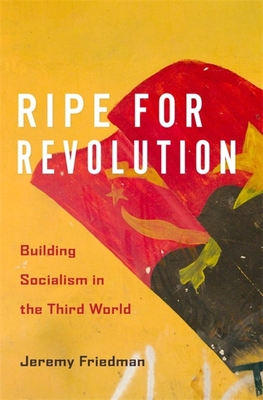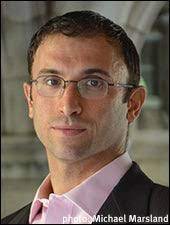

 Harvard University Press
Harvard University Press
Ripe for Revolution: Building Socialism in the Third World


Key Metrics
- Jeremy Friedman
- Harvard University Press
- Hardcover
- 9780674244313
- -
- -
- Political Science > Political Ideologies - Communism, Post-Communism & Socialism
- English
 Secure Transaction
Secure TransactionBook Description
A historical account of ideology in the Global South as the postwar laboratory of socialism, its legacy following the Cold War, and the continuing influence of socialist ideas worldwide.
In the first decades after World War II, many newly independent Asian and African countries and established Latin American states pursued a socialist development model. Jeremy Friedman traces the socialist experiment over forty years through the experience of five countries: Indonesia, Chile, Tanzania, Angola, and Iran.
These states sought paths to socialism without formal adherence to the Soviet bloc or the programs that Soviets, East Germans, Cubans, Chinese, and other outsiders tried to promote. Instead, they attempted to forge new models of socialist development through their own trial and error, together with the help of existing socialist countries, demonstrating the flexibility and adaptability of socialism. All five countries would become Cold War battlegrounds and regional models, as new policies in one shaped evolving conceptions of development in another. Lessons from the collapse of democracy in Indonesia were later applied in Chile, just as the challenge of political Islam in Indonesia informed the policies of the left in Iran. Efforts to build agrarian economies in West Africa influenced Tanzania's approach to socialism, which in turn influenced the trajectory of the Angolan model.
Ripe for Revolution shows socialism as more adaptable and pragmatic than often supposed. When we view it through the prism of a Stalinist orthodoxy, we miss its real effects and legacies, both good and bad. To understand how socialism succeeds and fails, and to grasp its evolution and potential horizons, we must do more than read manifestos. We must attend to history.
Author Bio
Jeremy Friedman is an assistant professor of business administration in the Business, Government, and International Economy Unit, and teaches the course of the same name in the MBA required curriculum. Previously, he was associate director of the Brady-Johnson Program in Grand Strategy at Yale University.
Professor Friedman studies the history of communism, socialism, and revolution in Russia, China, and the developing world. He examines how the project of socialist revolution and leftist thought more broadly evolved over the course of the twentieth century, particularly as revolutionary battlegrounds shifted from the industrialized countries to the developing world in the wake of decolonization. His work has been published in Cold War History and Modern China Studies and in media outlets including The National Interest, The Diplomat, and The Moscow Times. His first book, Shadow Cold War: The Sino-Soviet Competition for the Third World, was published in 2015.
Professor Friedman received his PhD in history from Princeton University and subsequently held a postdoctoral fellowship in international security studies at Yale University, where he taught courses in Russian and Cold War history.
Source: Harvard Business School
Community reviews
Write a ReviewNo Community reviews
